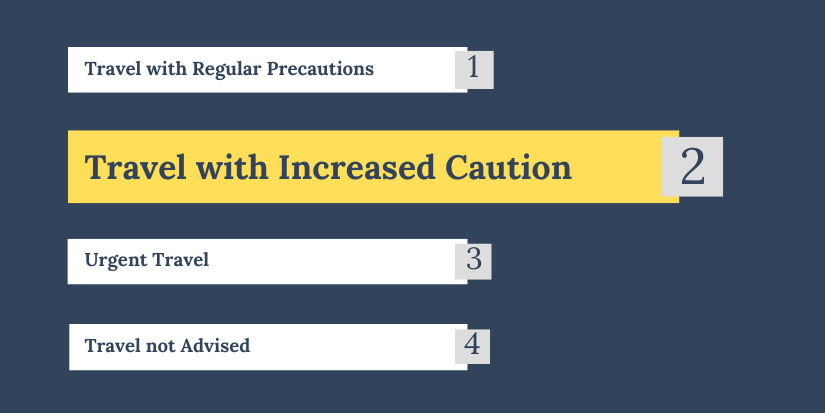
VISA REGIME
For holders of national passports and other travel documents: Visa required
For holders of diplomatic and official passports: Visa required
ENTERING AND LEAVING THE COUNTRY
The only airport in the country is Airai (ROR) on the island of Babeldaob.
All visitors must have a valid passport not less than 6 months from date of expiration and proof of return arrangements. 30-days Tourist Visa will be issued upon arrival and may be extended within 7 days in advance with approval of the Chief of Immigration (Note: Maximum of 90 days: 30 days upon arrival plus 2 extensions, after which visitors must exit the country). For more information about extended stay in Palau, please call the Bureau of Immigration at (680) 488 – 2498 or 2678, Mondays to Fridays at the hours 7:30am – 4:30pm or e-mail inquiries to imm@palaunet.com.
Palau Entry Form submissions must be within 72 hours or less prior to your arrival time in the Republic of Palau. Your responses must be in English. Only one form is required per family or single traveler.
Before traveling please check if you need a transit visa for transiting country.
When you visit Palau, you are asked to sign the Palau Pledge. All visitors must read the pledge and sign their name, committing to make an effort to protect the country’s natural environment and preserve local traditions for generations to come.
All foreign nationals are required to complete a customs declaration when entering Palau. Any amount equal to or greater than 10,000 US dollars must be reported to the competent customs authorities upon entry and departure. Departure tax and green fee of 20 and 30 US dollars, respectively, are charged at departure.
The following goods are exempt imports:
Cigarettes: Up to twenty (20) cigarettes (one (1) pack only).
Alcohol: Less than two (2) liters per adult.
Items exceeding the above limits must be declared at customs.
SOCIAL SECURITY AGREEMENT
No social security agreement has been concluded.
USEFUL INFORMATION
HEALTH SITUATION — Current information on the health situation is available on the website of the World Health Organization.
The health situation is relatively satisfactory, with dengue fever present seasonally. Healthcare in Palau is relatively good for routine cases, but with limited availability given that there is only one state hospital in the country. The state hospital and private clinics accept cash payments as well as credit cards.
It is recommended to consume bottled water as tap water is generally considered not safe for drinking.
The emergency number is 911, but it often takes up to two hours for an ambulance to arrive.
SECURITY SITUATION — The crime rate in Palau is low, but it is necessary to maintain personal safety and safety of personal belongings. In some parts of the country there are still unexploded ordnance from World War II, so caution is advised when diving, walking in nature or visiting caves.
Monsoons and cyclones are most common between June and December, but major storms mostly occur outside this period and often lead to air traffic disruptions. It is recommended to follow the local weather forecast, as well as instructions issued by the hotel staff.
Number in case of emergency is 911.
TRANSPORT – The only public transport in Palau are taxi cabs, which are not equipped with taximeters. Most taxi cabs have pre-fixed prices to certain destinations, and it is common to hire a taxi cab to get around.
OTHER INFORMATION – The US dollar (USD) is used in Palau, and payment in foreign currency is not allowed. Payment cards are accepted.
Contact information
For consular assistance and protection while in Palau, please contact the Embassy of the Republic of Serbia in Tokyo, Japan, which covers Palau on a non-residential basis, tel. 81 (0) 3-3447-3571 and e-mail: srb.emb.japan@mfa.rs
